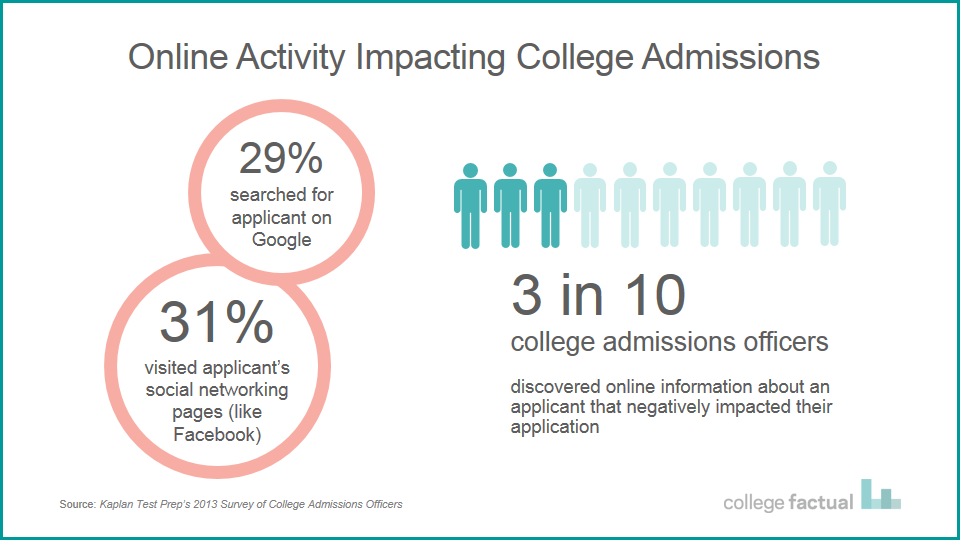Could Your Facebook Posts Hurt Your Chances of Getting Into Your Dream School?
/Before you tweet about that unfair homework assignment or post a rant on Facebook about how much you hate your biology teacher’s grading policy, stop and think about how college admissions officers might view your words.
He Said What?!
In a recent New York Times article, Natasha Singer interviewed several college admissions officers from around the country to ask if and how they use public online information about applicants when making acceptance decisions. While performing Google searches and checking out a student’s Facebook page and Twitter profile isn’t considered standard operating procedure (yet), there have been times when information discovered on the Internet has had a definite negative impact.
One example Singer shared involved an applicant to Pitzer College:
Last year, an undergraduate at Pitzer College in Claremont, Calif., who had befriended a prospective student on Facebook, notified the admissions office because he noticed that the applicant had posted offensive comments about one of his high school teachers.
“We thought, this is not the kind of person we want in our community,” Angel B. Perez, Pitzer’s dean of admission and financial aid, told me.
So, even if your comments aren’t completely public – in the above case, the student may have only shared his posts with his Facebook connections – they can still reach the ears of college officials.
How Many Schools Check Out Online Activity?
Not all colleges take the time to perform Google searches or look at a potential applicant’s social media activity, but there are indicators that this practice may be on the rise. At the very least, it doesn’t look like it will be going away any time soon.
According to Kaplan Test Prep’s 2013 Survey of College Admissions Officers, 29% of admissions officers have Googled an applicant to learn more about them. This is consistent with the results of Kaplan Test Prep’s 2012 survey in which 27% of the respondents said they had searched for an applicant on Google.
 Survey takers were also asked if they had ever visited an applicant’s social networking pages (like Facebook or Twitter). The 2013 survey reports that 31% of college admissions officers responded “yes” – an increase from the 26% affirmative response in the 2012 survey.
Survey takers were also asked if they had ever visited an applicant’s social networking pages (like Facebook or Twitter). The 2013 survey reports that 31% of college admissions officers responded “yes” – an increase from the 26% affirmative response in the 2012 survey.
Of those surveyed, 30% said that they had discovered something online that negatively impacted a prospective student’s application. That’s a number that should make college applicants sit up and take note – especially if they are applying to highly selective schools that receive a ton of packets from qualified students but only have a limited number of open seats.
How Does Your Online Profile Stack Up?
If college reps took a look at your Facebook page or your recent tweets, would they be shocked or impressed? Or neither? It might be time to do a little clean-up work – get rid of any potentially embarrassing old posts and think twice about what you share in the future.
Sure, your friends may love those pictures you took at last weekend’s party and your not-so-glowing review of your math teacher’s wardrobe. But, chances are, admissions officers won’t be that impressed.








